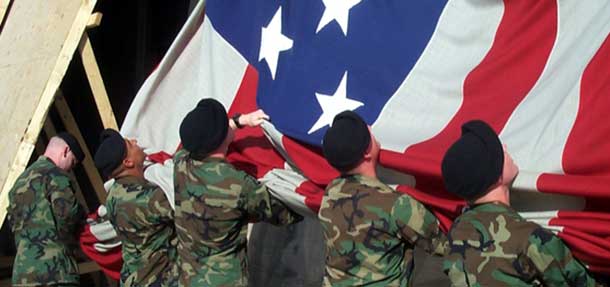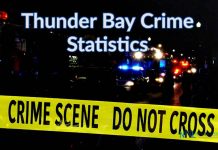The 20 year anniversary of the 9/11 attacks mark what many view as a turning point in U.S. history, a day that gave Americans a sense of vulnerability and that irreversibly changed U.S. politics
By Tyler Clifford and Nathan Layne
NEW YORK, Sept 11 (Reuters) – Twenty years after hijacked airliners smashed into New York City’s World Trade Center and the Pentagon outside Washington, Americans came together on Saturday to honor the nearly 3,000 lives lost on Sept. 11, 2001, and reflect on how the attacks have shaped the country’s view of the world and itself.
After a first responder struck a silver bell, the ceremony at the Sept. 11 Memorial in lower Manhattan began with a moment of silence at 8:46 a.m. EDT (1246 GMT), the exact time the first of two planes flew into the World Trade Center’s twin towers. President Joe Biden was on hand, his head bowed.
Mike Low, the first speaker of the day, described the “unbearable sorrow” caused by the death of his daughter, Sara, a flight attendant on the airliner that hit the North Tower.
“My memory goes back to that terrible day when it felt like an evil specter had descended on our world, but it was also a time when many people acted above and beyond the ordinary,” he said. “A legacy from Sara, that burns like an eternal flame.”
Relatives then began to read aloud the names of 2,977 victims to the thousands who had gathered on the cool, clear morning, among them former President Barack Obama and Hillary Clinton, New York’s junior senator at the time of the attacks.
Bruce Springsteen sang “I’ll See You in My Dreams”. Uptown at the Lincoln Center dancers performed in silver and white robes, signifying the ashes and purity of the fallen.
After leaving ground zero, Biden headed to Shanksville, Pennsylvania, where Flight 93 was downed after passengers fought to regain control of the hijacked plane. His final visit will be to the Pentagon, headquarters of the U.S. Defense Department in Arlington, Virginia, to pay tribute to the 184 people who died there in the crash of Flight 77.
The remembrances have become an annual tradition but Saturday has special significance, coming 20 years after the morning that many view as a turning point in U.S. history, a day that gave Americans a sense of vulnerability that has deeply influenced the country’s political life since then.
In a painful reminder of those changes, only weeks ago U.S. and allied forces completed a chaotic withdrawal from the war the United States started in Afghanistan in retaliation for the attacks – which became the longest war in U.S. history. And the COVID-19 pandemic, which so far has claimed more than 655,000 lives in the United States, continues.
Chairman of the Joint Chiefs of Staff General Mark Milley spoke on Saturday about the 2,461 U.S. service members killed in Afghanistan, including 13 during last month’s withdrawal, and the closing of “this terrible chapter in our nations history.”
“We are all now this very day very conflicted with feelings of pain and anger, sorrow and sadness combined with pride and resilience,” Milley said during a ceremony at the Pentagon.
TWIN BEAMS
At sunset, 88 powerful lightbulbs will project twin beams four miles (6.4 km) into the sky to mirror the fallen towers. This year, buildings across Manhattan, including the Empire State Building and the Metropolitan Opera, will join the commemoration by illuminating their facades in blue.
Also marking the anniversary, the New York Mets and New York Yankees baseball teams will play each other on Saturday evening as part of a special Subway Series, their first game on Sept. 11 since the attacks. The players will wear caps bearing logos for the New York City Fire Department and other first responders.
The 20-year milestone arrives as political leaders and educators fret over the thinning collective memory of that day. Some 75 million Americans – nearly a quarter of the estimated U.S. population – have been born since Sept. 11, 2001.
For some, the tumultuous events in Afghanistan have compounded the psychological toll of the day, raising questions about whether the U.S. military’s mission there was in vain.
Alain Michnick, a finance professional who lived a couple miles north of the World Trade Center 20 years ago, said he has mixed feelings about some of the actions taken by the U.S. military since then and how society has changed.
“I think it changed the world in a lot of ways in a bad way because it turned people to be kind of paranoid and violent to some degree,” said Michnick, who came to commemorate the moment outside the ceremony at ground zero.
While many of the large events were happening in and around New York City, people across the country planned events to remember those who died and to educate the public.
In Shanksville in southwestern Pennsylvania, family and guests gathered at the National Memorial there to honor the 40 people killed when United Airlines Flight 93 crashed into a field. Former President George W. Bush, who took office eight months before the attacks changed the trajectory of his presidency, was among those who spoke.
He called for unity and said the solidarity shown after the attacks seemed a far cry from the political rifts now dividing Americans.
“Malign force seems at work in our common life … so much of our politics has become a naked appeal to anger, fear and resentment,” Bush said.
(Reporting by Tyler Clifford in New York and Nathan Layne in Wilton, Connecticut; Editing by Jonathan Oatis and Daniel Wallis)







